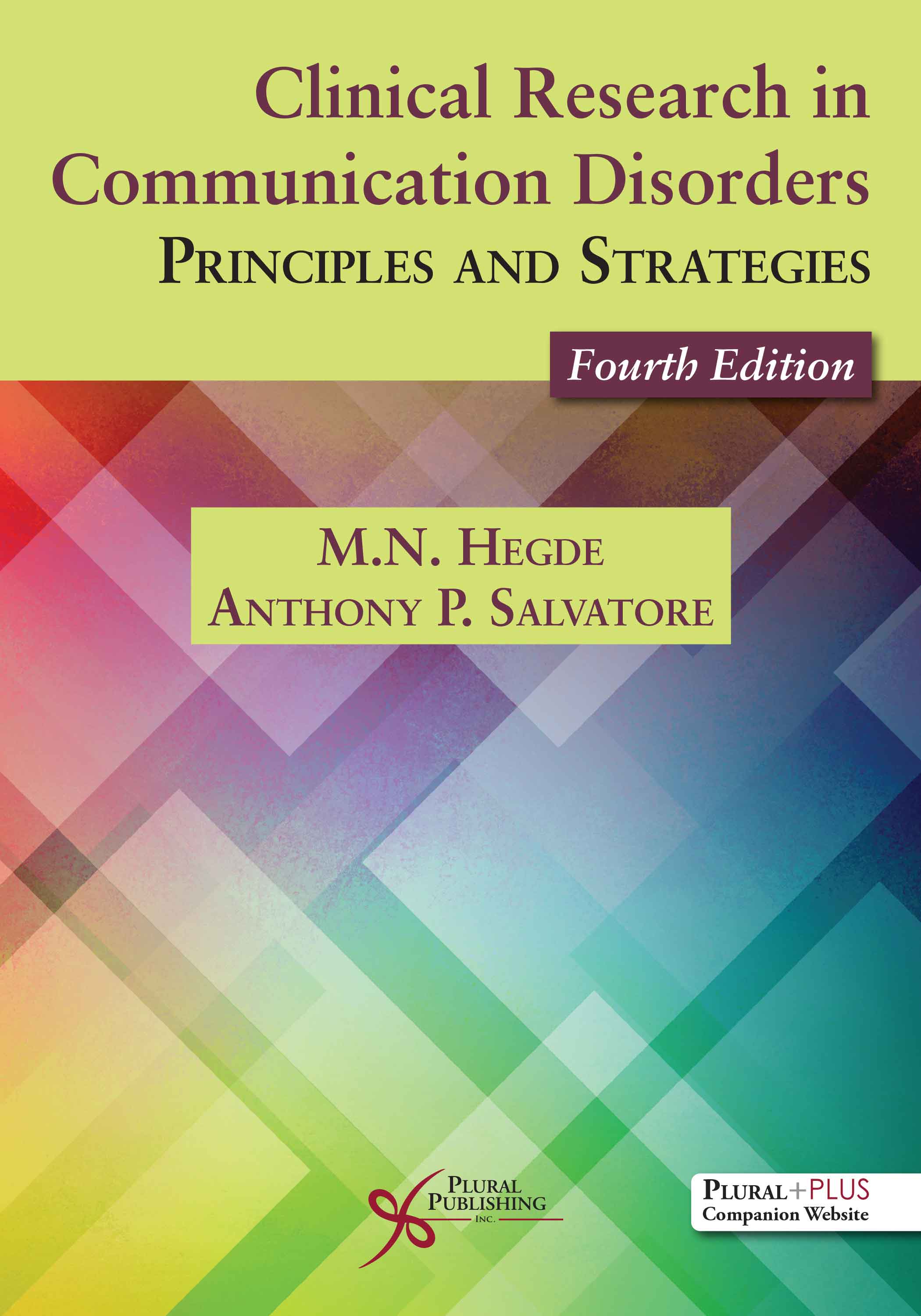
Clinical Research in Communication Disorders: Principles and Strategies
Fourth Edition
M.N. Hegde, Anthony P. Salvatore
Details: 526 pages, B&W, Softcover, 7" x 10"
ISBN13: 978-1-63550-187-2
© 2020 | Available
For Instructors
Purchase
This thoroughly updated fourth edition of Clinical Research in Communication Disorders: Principles and Strategies remains an instrumental resource for courses on research methods and design in communication disorders.
The book is separated into three key sections: science and the scientific methods, clinical research designs, and doing, reporting, and evaluating research. Together, these sections provide thorough coverage of both the single-subject and group design strategies along with issues of measurement; philosophy of science; ethics of research; and planning, conducting, and reporting research.
Instructors and students in communication sciences and disorders will appreciate the text's comprehensive coverage of scientific methods, group and single-subject research designs, report writing, and ethics of research in a single source.
New to the Fourth Edition
- New coauthor, Anthony P. Salvatore, PhD
- A new chapter on statistical analysis of research data, including several statistical techniques for single-subject research data, meta-analysis of both group and single-subject studies
- Updated criteria for visual analysis of single-subject research data
- New sections on translational research, qualitative research, and mixed methods research
- Descriptions of additional research designs not included in the previous edition (e.g., the regression discontinuity design)
- Updated information on research ethics and review of fraudulent biomedical research
- Web-based sources that monitor research fraud and recalled studies
- Updated and expanded references throughout
Key Features
- Chapter outlines open each chapter and provide a summary of the key topics
- Chapter summaries recap key points in an easy-to-read bulleted format
- End-of-chapter study guides allow readers to test their knowledge
- Bolded key terms throughout
- Access to a PluralPlus Companion Website with PowerPoint lecture slides for each chapter
Reviews
"Although it is quite in depth, it is also written in a way that is easy to understand. I appreciate the fact that unlike other research methods books, it focuses on a specific field of study and addresses the nuances of that field in conducting, writing, and evaluating research. This book is comprehensive enough to be used as a standalone textbook in either an undergraduate or graduate research methods class. It is also a very good resource for professionals who are currently working as clinicians and looking to add to the pool of evidence-based practice with findings from their clinical practice."
—Yvana Uranga-Hernandez, MA, MS, PhD, Biola University, (Doody's Book Reviews)
Preface to the First Edition
Preface to the Fourth Edition
Part I. Science and the Scientific Methods
Chapter 1. Why Study Science and Research Methods?
Evaluation of Research
The Need to Study Scientific Methods
The Need to Produce In-House Knowledge
Why Research by Clinicians is Limited
Problems Associated with Certain Research Practices
Problems Associated with the Education and Training Models
Summary
References
Study Guide
Chapter 2. An Introduction to Research: The Formal and Formative Approaches
What is Research?
Why Do Scientists Do Research?
How Is Research Done?
Serendipity in Research
Planning is Still Important
Summary
References
Study Guide
Chapter 3. Science and Its Basic Concepts
What is Science?
Outcome of Scientific Activity
Variables and Their Types
Causality and Functional Analysis
Experiment and Experimental Control
Hypotheses in Scientific Research
Theories and Hypotheses
Inductive and Deductive Reasoning
Theories and Scientific Laws
Data and Evidence
Summary
References
Study Guide
Chapter 4. Treatment Research
Evidence-Based Practice
What is Treatment Research?
Consequences of Treatment
Treatment Research: Logical and Empirical Constraints
Group Treatment Research: Randomized Clinical Trials
Single-Subject Treatment Research: Multiple Control Conditions
Randomized Clinical Trials Versus Single-Subject Treatment Research
Classification of Treatment Research
Summary
References
Study Guide
Chapter 5. Other Types of Research
Ex Post Facto Research
Normative Research
Standard-Group Comparisons
Experimental Research
Clinical and Applied Research
Translational Research
Sample Surveys
Qualitative Research
Mixed Methods Research
The Relation Between Research Types and Questions
Summary
References
Study Guide
Chapter 6. Observation and Measurement
Observation and Measurement
Philosophies of Measurement
Scales of Measurement
Measures of Communicative Behaviors
Client-Assisted Measurement
Indirect Measures: Self reports
The Observer in the Measurement Process
Mechanically Assisted Observation and Measurement
Reliability of Measurement
Summary
References
Study Guide
Part II. Clinical Research Designs
Chapter 7. Research Designs: An Introduction
What Are Research Designs?
The Structure and Logic of Experimental Designs
Variability: Philosophical Considerations
Experimental Designs: Means of Controlling Variability
Validity of Experimental Operations
Generality (External Validity)
Factors that Affect Generality
Concluding Remarks
Summary
References
Study Guide
Chapter 8. The Group Design Strategy
Common Characteristics of Group Designs
Preexperimental Designs
True Experimental Designs
Designs to Evaluate Multiple Treatments
Factorial Designs
Quasi-experimental Designs
Time-Series Designs
Counterbalanced Within-Subjects Designs
Correlational Analysis
Group Designs in Clinical Research
Summary
References
Study Guide
Chapter 9. Single-Subject Designs
Historical Background of Single-Subject Designs
Characteristics of Single-Subject Designs
Experimental Control in Single-Subject Designs
Preexperimental Single-Subject Design
Designs for Single Treatment Evaluation
Designs for Multiple Treatment Comparison
Design for Interactional Studies
N-of-1 Randomized Clinical trials
Single-Subject Designs in Clinical Research
Summary
References
Study Guide
Chapter 10. Statistical Analysis of Research Data
Historic Introduction to Statistical Analysis of Research Data
Statistical Significance
Hypothesis Testing
Statistical Analysis of Group Design Data
Systematic Reviews and Meta-Analyses
Visual Analysis of Single-Subject Data
Statistical Analysis of Single-Subject Data
Statistical Significance Versus Clinical Significance
Summary
References
Study Guide
Chapter 11. Generality Through Replications
Direct Replication
Systematic Replication
Sample Size and Generality
Failed Replications: Sources of Treatment Modifications
Homogeneity and Heterogeneity of Participants
Summary
References
Study Guide
Chapter 12. Comparative Evaluation of Design Strategies
Research Questions and Investigative Strategies
Advantages and Disadvantages of Design Strategies
Problems Common to Design Strategies
Philosophical Considerations in Evaluation
The Investigator in the Design Selection Process
The Final Criterion: Soundness of Data
Summary
References
Study Guide
Chapter 13. Designs Versus Paradigms in Research
Limitations of Exclusively Methodological Approaches
Research Methods and Subject Matters
Philosophy as Methodology
Philosophy of Subject Matters
Philosophy of the Science of Speech and Language
Philosophical Ways of Handling Methodological Problems
The Interplay Between Philosophy and Methodology
Summary
References
Study Guide
Part III. Doing, Reporting, and Evaluating Research
Chapter 14. How to Formulate Research Questions
How to Formulate Research Questions
Preparation of Theses and Dissertations
Summary
References
Study Guide
Chapter 15. How to Write Research Reports
General Formats of Scientific Reports
Structure and Content of Research Papers
Writing Without Bias
Good Writing: Some Principles
Writing Style
Writing and Revising
Summary
References
Study Guide
Chapter 16. How to Evaluate Research Reports
Professionals as Consumers of Research
Understanding and Evaluating Research
Evaluation of Research
Evaluation of Research Reports: An Outline
A Hierarchy of Treatment Research Evidence
Evaluation and Appreciation of Research
Summary
References
Study Guide
Chapter 17. Ethics of Research
Fraud in Scientific Research
Ethical Justification for Treatment Evaluation
The Protection of Human Participants in Research
Ethical Issues with Treatment Research
Consequences of Ethical Constraints
Protection of Animal Subjects
Dissemination of Research Findings
Summary
References
Study Guide
Index
Instructors of this book receive complimentary access to supplementary materials hosted on a PluralPlus companion website.
To access the materials, log in to the website using the URL located inside the front cover of your copy of Clinical Research in Communication Disorders: Principles and Strategies or click on the Companion Website link.
INSTRUCTORS:
To access the instructor materials, you must contact Plural Publishing, Inc. to be verified as an instructor and receive your access code.
Email: instructormaterials@pluralpublishing.com
Tel: 866-758-7251 (toll free) or 858-492-1555
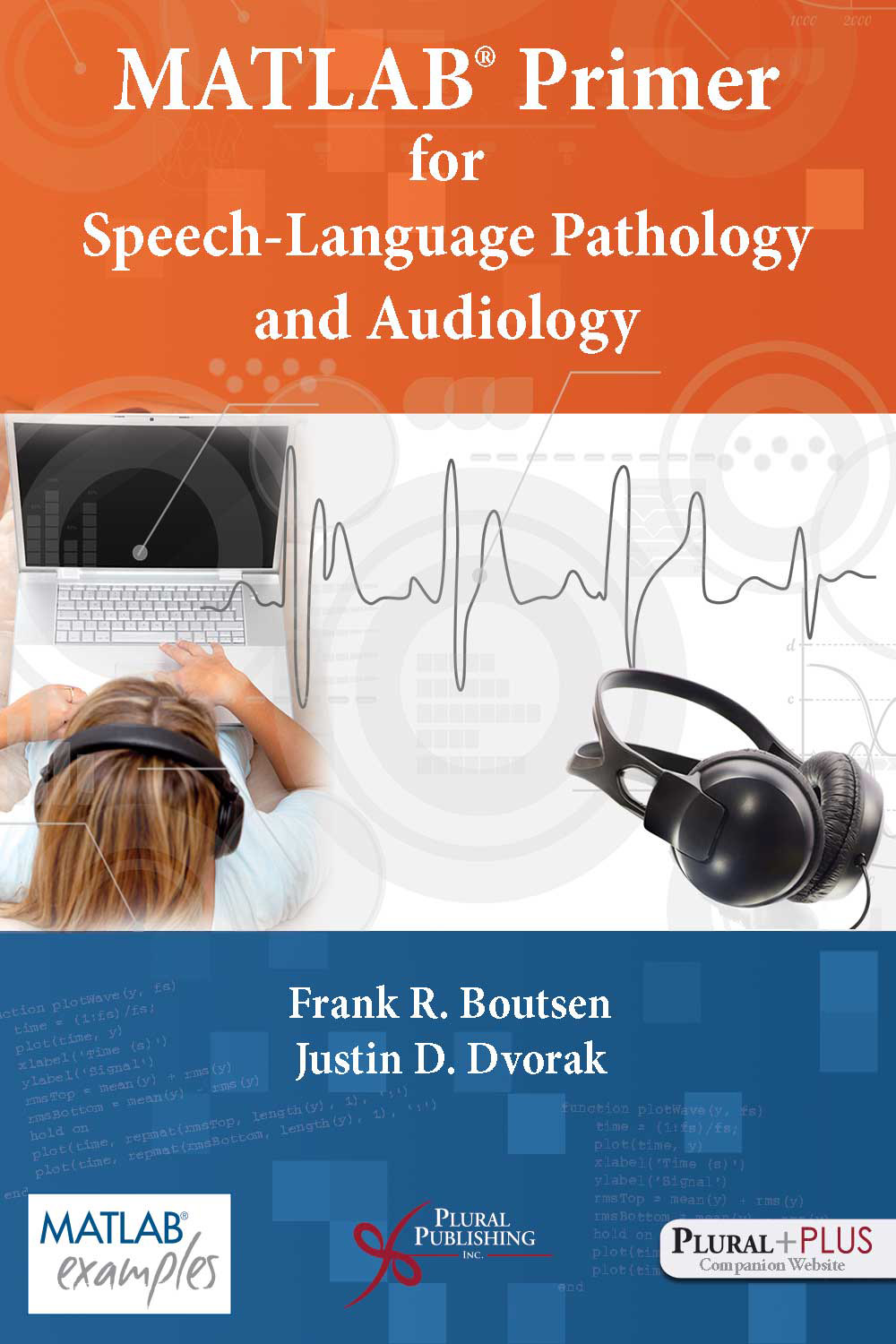
MATLAB® Primer for Speech-Language Pathology and Audiology
First Edition
Frank R. Boutsen, Justin D. Dvorak
Details: 232 pages, B&W, Softcover, 7" x 10"
ISBN13: 978-1-59756-653-7
© 2016 | Available
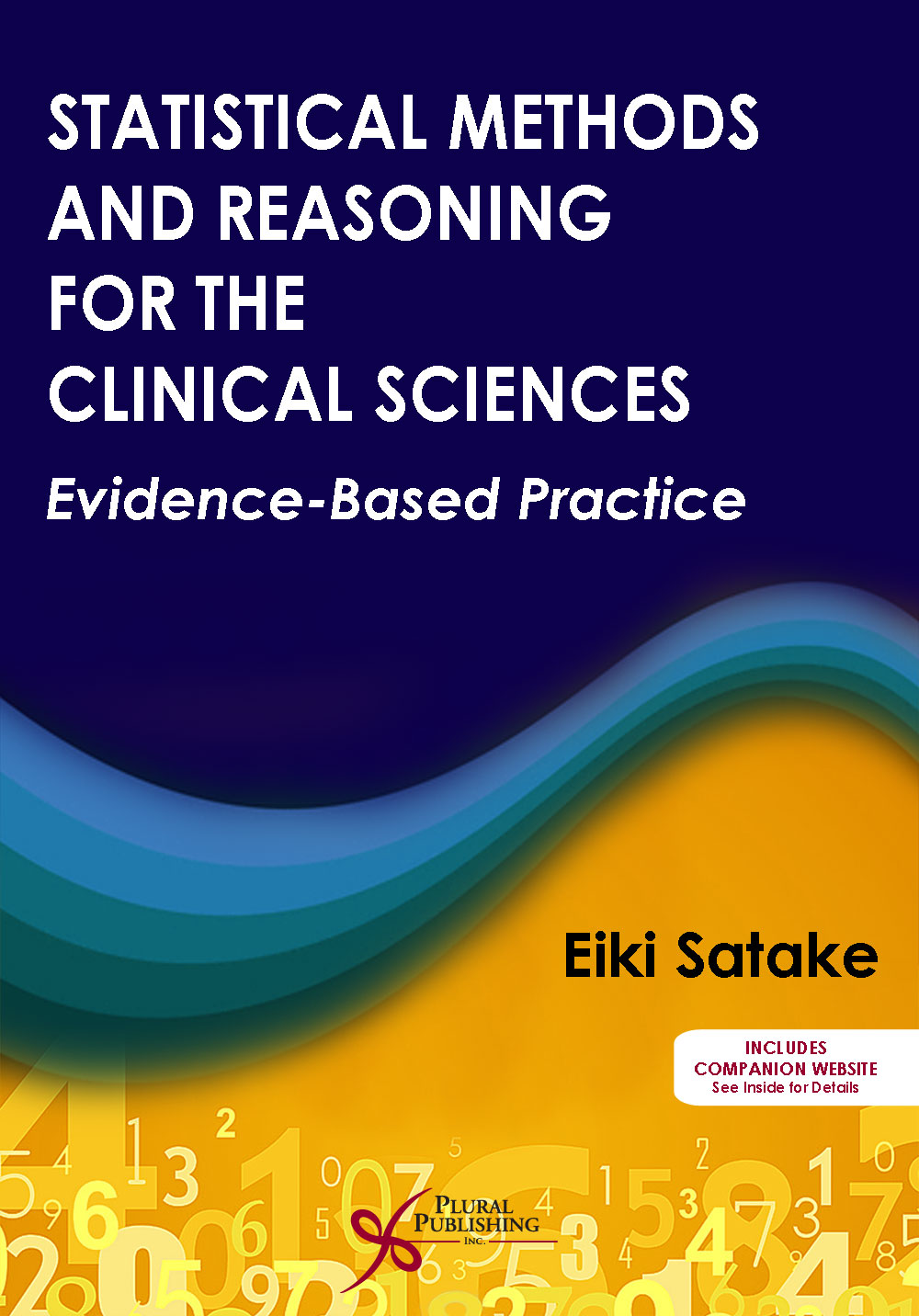
Statistical Methods and Reasoning for the Clinical Sciences: Evidence-Based Practice
First Edition
Eiki Satake
Details: 592 pages, B&W, Softcover, 7" x 10"
ISBN13: 978-1-59756-433-5
© 2015 | Available
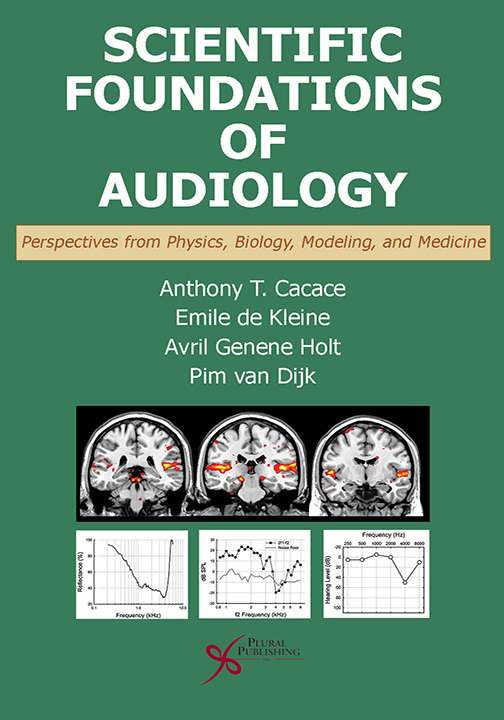
Scientific Foundations of Audiology: Perspectives from Physics, Biology, Modeling, and Medicine
380 pages, B&W, Hardcover, 7" x 10"
Anthony T. Cacace, Emile de Kleine, Avril Genene Holt, Pim van Dijk
Details: 380 pages, B&W, Hardcover, 7" x 10"
ISBN13: 978-1-59756-652-0
© 2016 | Available
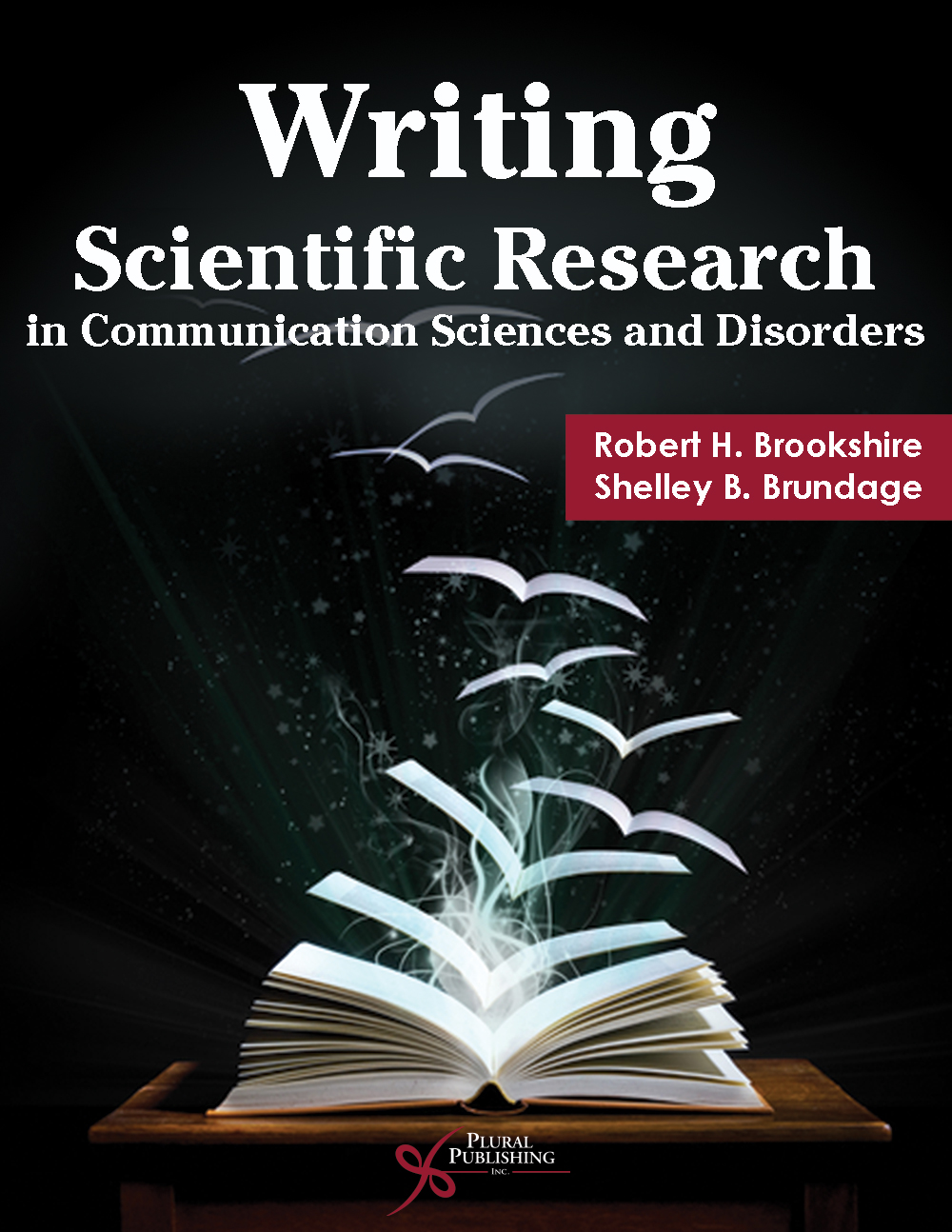
Writing Scientific Research in Communication Sciences and Disorders
First Edition
Robert H. Brookshire, Shelley B. Brundage
Details: 214 pages, B&W, Softcover, 7" x 10"
ISBN13: 978-1-59756-614-8
© 2016 | Available
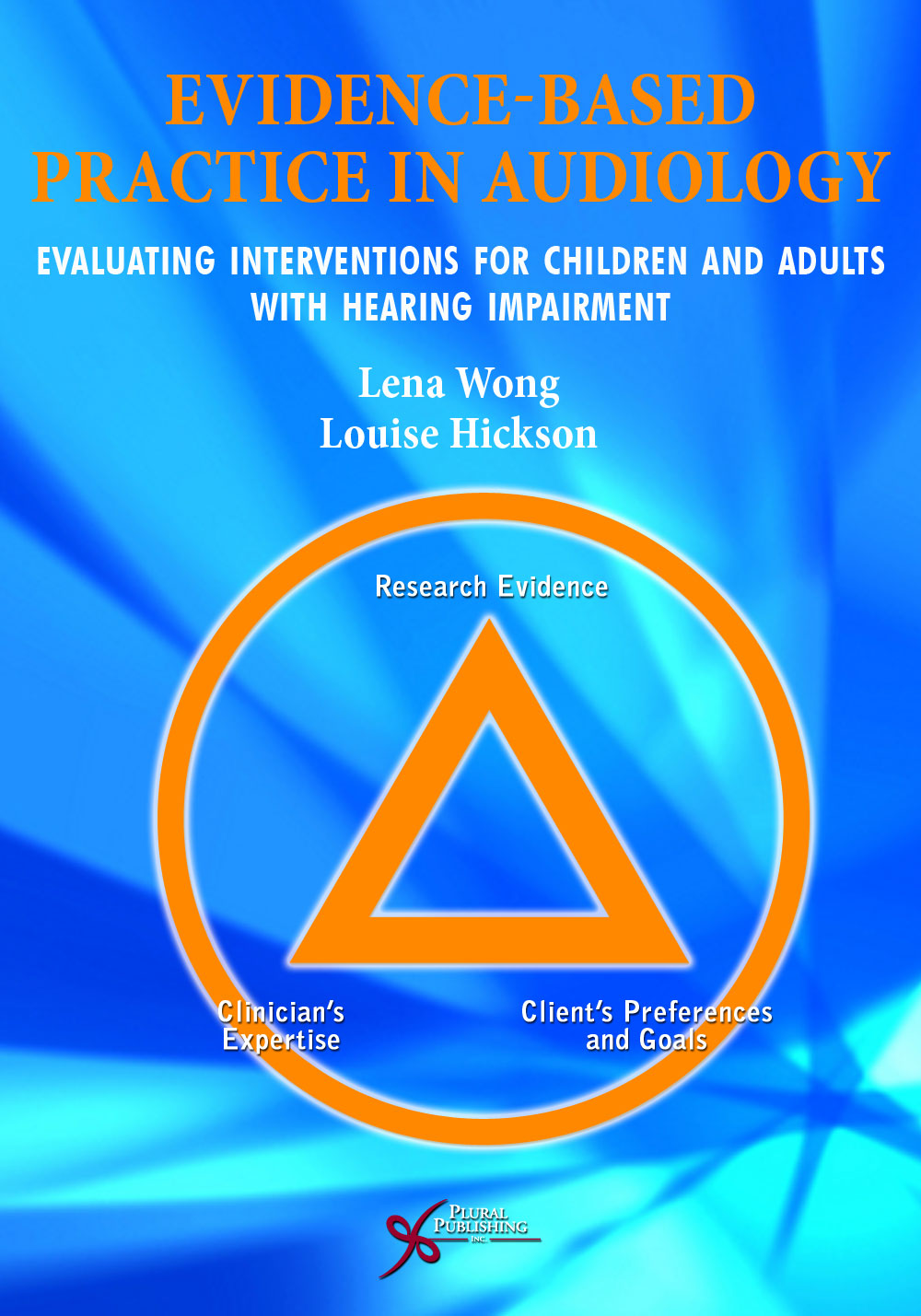
Evidence-Based Practice in Audiology: Evaluating Interventions for Children and Adults with Hearing Impairment
First Edition
Lena Wong, Louise Hickson
Details: 356 pages, B&W, Softcover, 7" x 10"
ISBN13: 978-1-59756-419-9
© 2012 | Available

Building a Research Career
First Edition
Christy L. Ludlow, Raymond D. Kent
Details: 224 pages, B&W, Softcover, 7" x 10"
ISBN13: 978-1-59756-227-0
© 2011 | Available
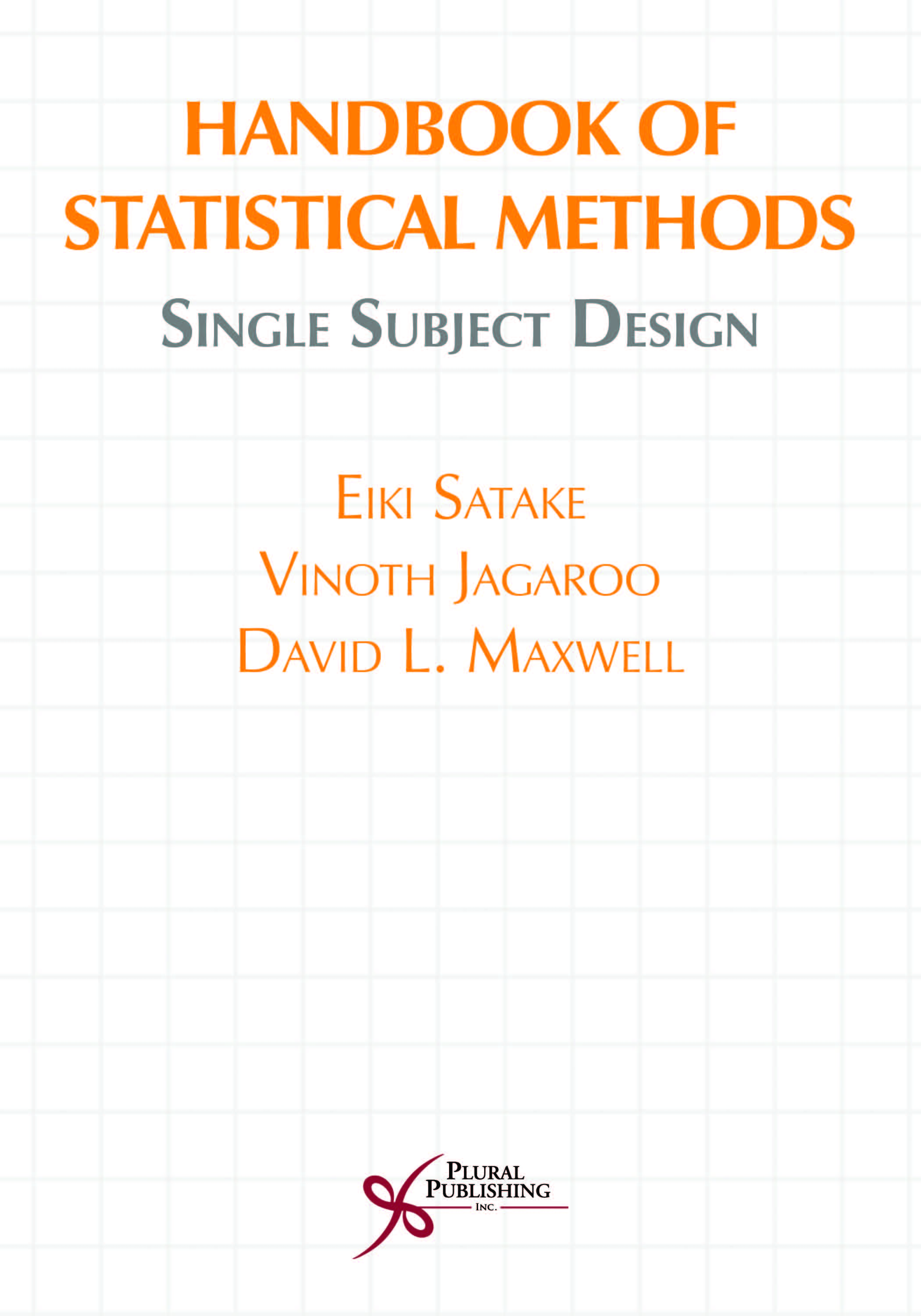
Handbook of Statistical Methods Single Subject Design
First Edition
Eiki Satake, Vinoth Jagaroo, David L. Maxwell
Details: 172 pages, B&W, Softcover, 7" x 10"
ISBN13: 978-1-59756-098-6
© 2008 | Available
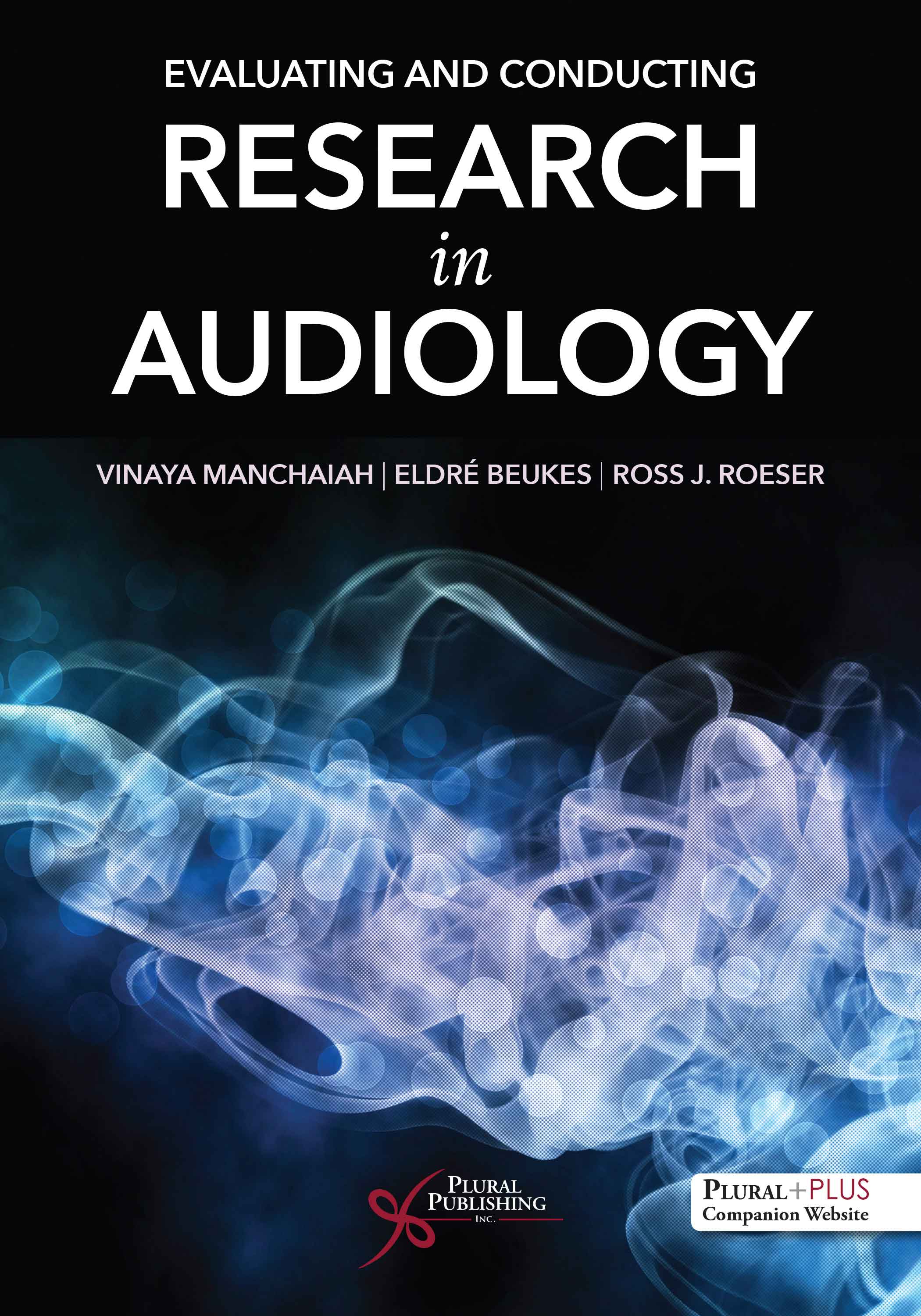
Evaluating and Conducting Research in Audiology
First Edition
Vinaya Manchaiah, Eldré W. Beukes, Ross J. Roeser
Details: 400 pages, B&W, Softcover, 7" x 10"
ISBN13: 978-1-63550-190-2
© 2022 | Available
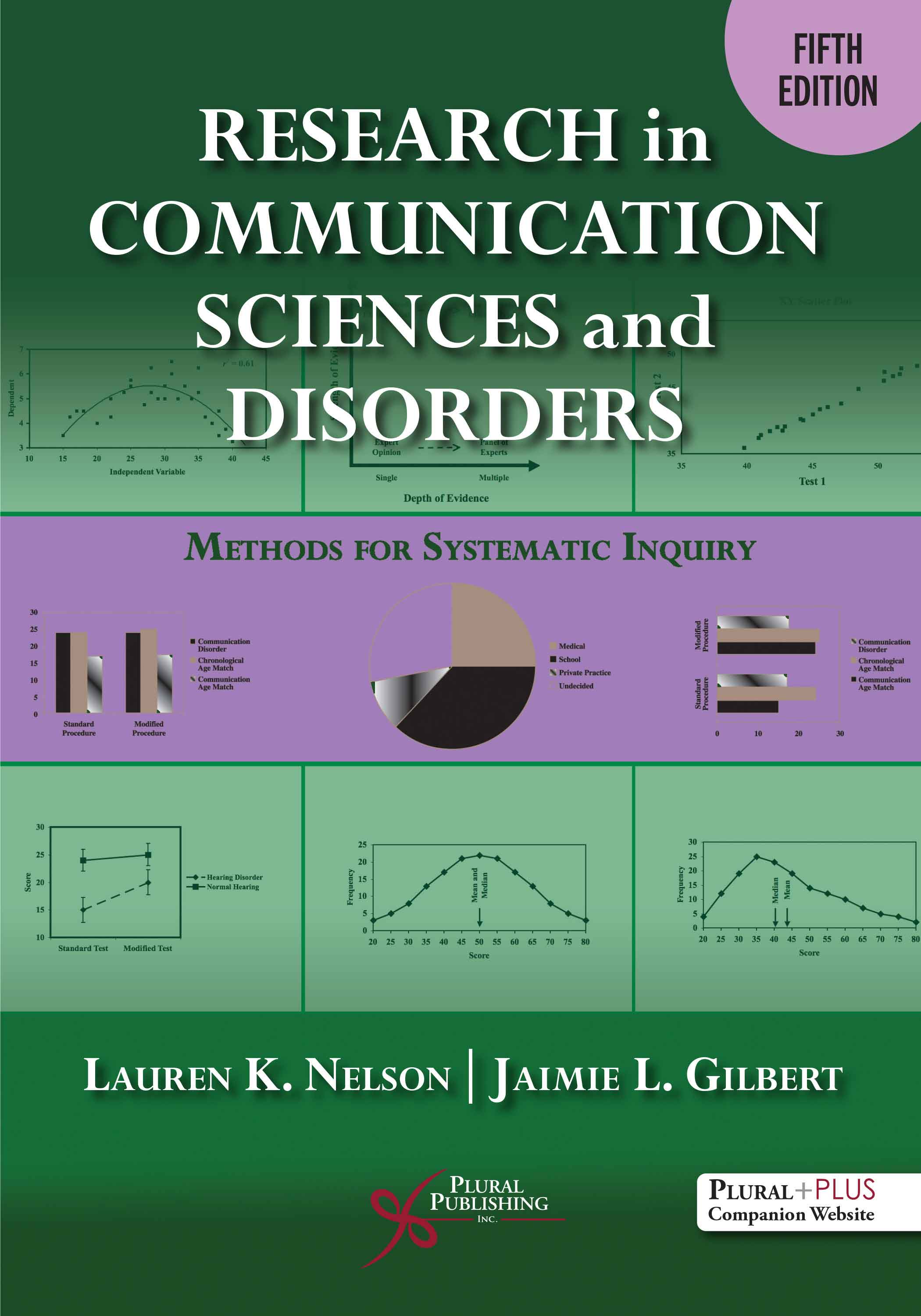
Research in Communication Sciences and Disorders: Methods for Scientific Inquiry
Fifth Edition
Lauren K. Nelson, Jaimie L. Gilbert
Details: 309 pages, B&W, Softcover, 7" x 10"
ISBN13: 978-1-63550-702-7
© 2026 | Available
